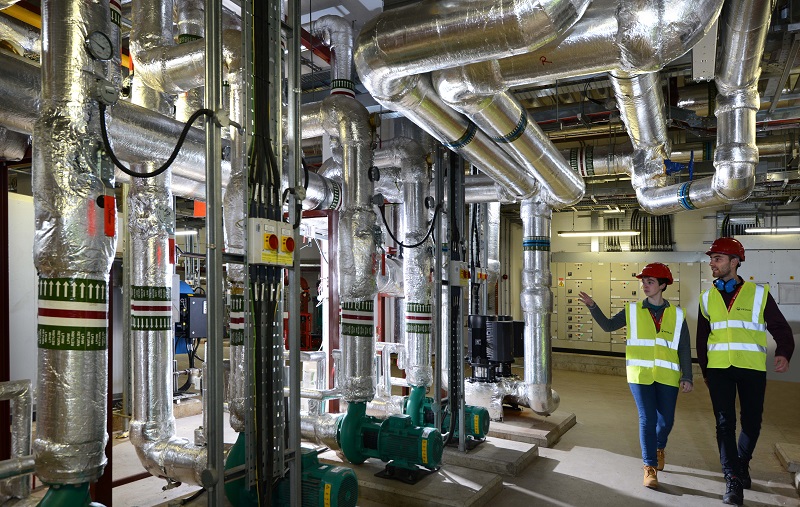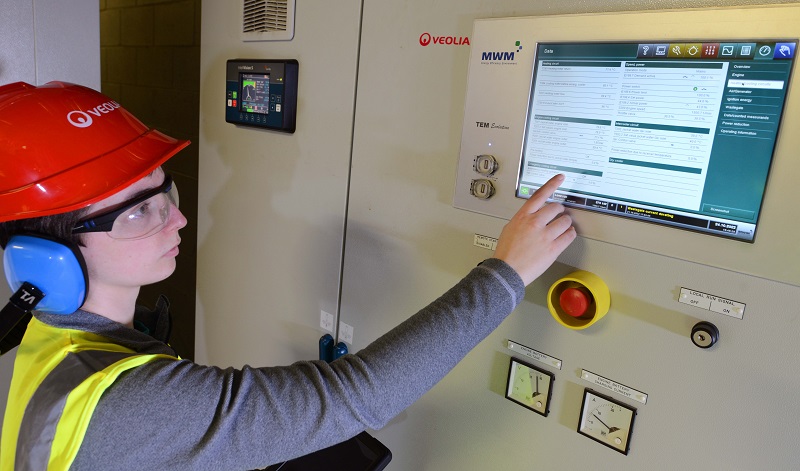Veolia has exceeded the target savings for Dublin’s Mater Misericordiae University Hospital following the first year of operations.
The results, including an additional €44,000 of savings, were achieved after extensive energy efficiency upgrades completed under the first Carbon Energy Fund, CEF, contract for a hospital in Ireland.
The 15-year Energy Infrastructure Project Agreement will reduce the hospital’s carbon footprint by approximately 72,000 tonnes, cut imported electricity from the national grid by 77%, and deliver €26m in guaranteed energy and operational savings.
At the end of Year 1, the data indicates savings of €1,565,759 have been achieved against planned guaranteed savings of €1,521,868, resulting in additional savings of €43,891.
By 2025, the Mater Hospital is aiming to have moved energy efficiency gains from the current 37.2%, ahead of the 33% target set by the Government, to over 50%.
A secure and cost-efficient energy supply is essential to maintain a modern patient care environment for the hospital, which has more than 600 beds and treats over 360,000 patients each year.
To meet the energy demand and achieve carbon savings of 35% Veolia's specialist energy teams managed a wide range of energy efficiency projects covering the design, delivery, installation, and commissioning of a range of energy upgrades. These included installation of 2,600sq of double-glazed windows, fitting 3,800 new energy-efficient light fittings, and a new 2MWe Combined Heat and Power (CHP) plant to generate around 13.8 GWh of electricity a year.
Supporting these measures is an upgraded Building Management System (BMS) covering the energy installations on the site, and managing the heat distribution through the 1.7km of installed district heating network that delivers heat to nine existing boiler houses across the campus.
The work has included a new CHP and upgraded Building Management System
To ensure patient care could be maintained during the lighting and window upgrade projects, the renovation of each ward was delivered with a six-week turnaround per ward, and a decant or ‘floating’ ward was created to enable patients to be transferred during the upgrades.
While the energy infrastructure was being upgraded the hospital also took the opportunity to carry out other work including replacing floors and ceilings, as well as redesigning wards to provide new nursing stations and improved bathrooms. This gave the hospital a unique opportunity to fully renovate a 40-year-old building, and once the renovation work was completed the wards were cleaned and sterilised to infection control standards and patients returned back to the refurbished wards.
Alan Sharp, chief executive of Mater Hospital, said: “The energy project has delivered more than the savings we expected based on its current performance.
“We’re extremely thankful we took the decision to start this project, especially with concerns over energy supply and the increasing cost of energy.”
Fergus Elebert, regional director at Veolia Ireland, added: “This project highlights the success of this approach for decarbonising the healthcare sector.
“A major element that contributed to the success of the infrastructure upgrades was the high level of teamwork between the hospital’s facilities team, the medical teams, Veolia, and the contractors and suppliers.
“We look forward to extending this success at the Mater as we move towards achieving a net zero goal.”
By 2025 the hospital aims to have moved to energy efficiency gains of more than 50%




